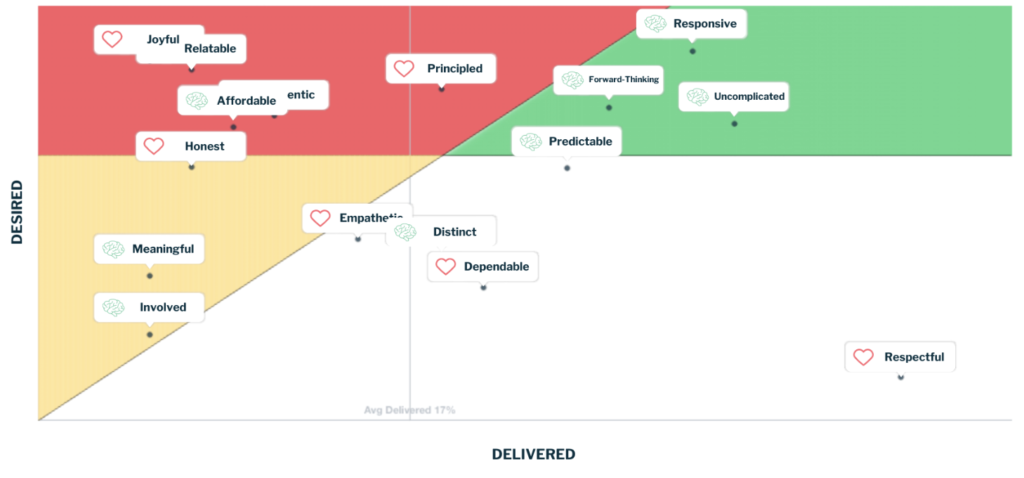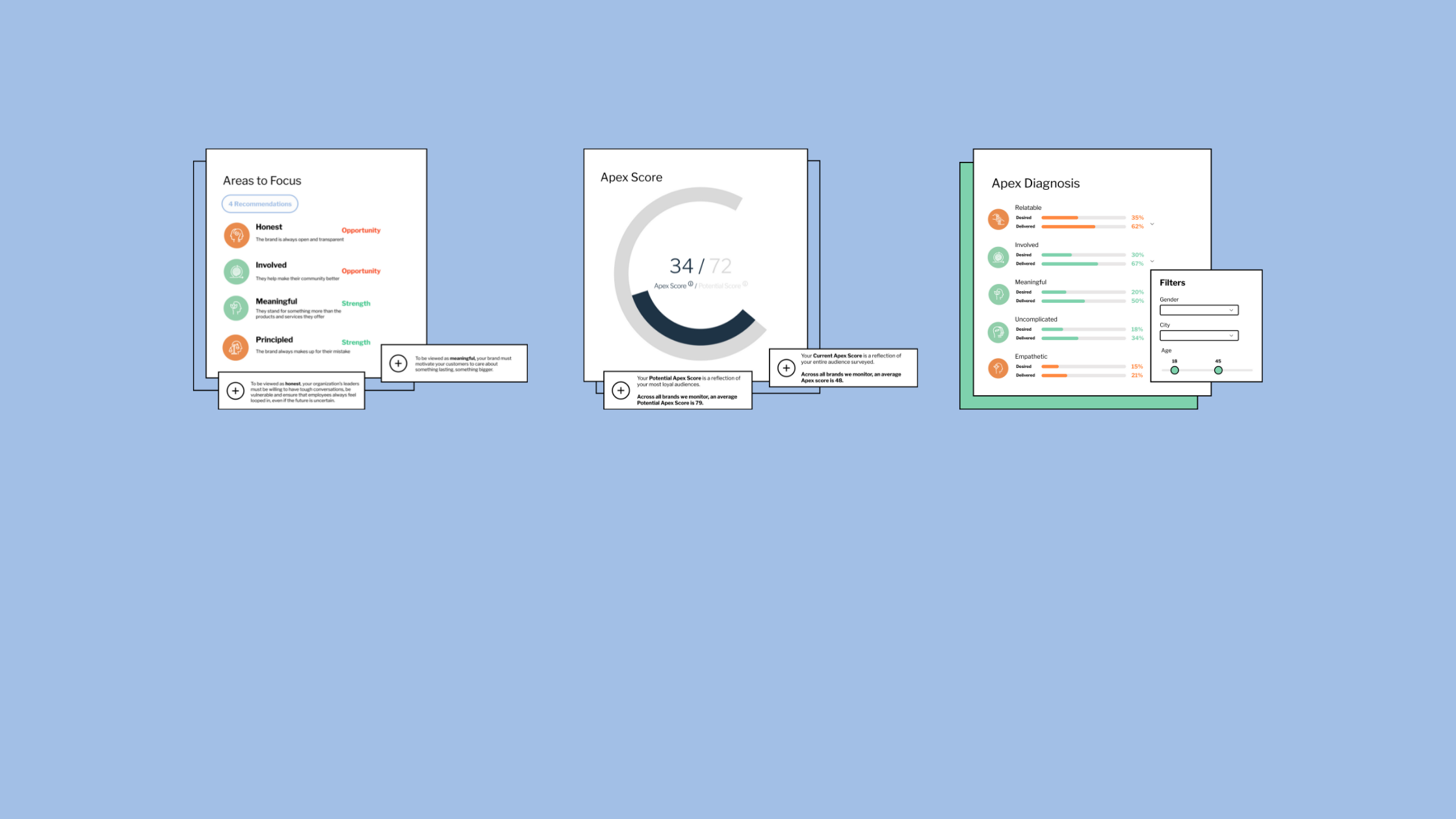Luxury automakers, we have bad news for you. According to a recent article, brand loyalty among most luxury car buyers is dropping, and 13 out of 16 automakers experienced a decrease in commitment compared to previous years. As a whole, the industry saw a 4.5% decrease in loyalty. Ouch.
This decline in loyalty was most prominent in brands like Lincoln, Porsche, and Land Rover, with loyalty percentages dropping by 7.9%, 8.5%, and 9.2%, respectively. The article offered various logical reasons for this, including the age of flagship models, global supply shortages causing consumers to switch brands, the economic downturn, and even issues with product reliability.
Top Automobile Brand Loyalty Attributes
No Data Found
This got us wondering, why exactly is loyalty declining in this segment? To find answers, we conducted a study with US vehicle owners to determine where automotive brands were missing the mark on loyalty. Surprisingly, the results overwhelmingly pointed towards brands failing to meet the emotional needs of their customers rather than any significant product shortcoming.
Our study revealed that car owners desired three key attributes of loyalty: Joyful, Relatable, and Principled. They wanted experiences that would put a smile on their face, reflections of themselves in the brand, and a brand that always makes up for their mistakes. Interestingly, self-described women emphasized authenticity, while self-described men valued empathy.
Even when considering the industry’s relative strengths, the picture remains bleak. One would expect predictability to be a strong suit, but our study showed weak agreement even on this attribute. Predictability, while good, is merely a symptom of customers avoiding the unknown.

But how can automotive brands solve this problem? Our findings suggest three key strategies:
To do this, adopt a less is more approach. When presented with many choices, some customers like to carefully examine every option before deciding. Understandably, this can be exhausting. To ensure a joyful experience, narrow your offerings to the top-performing products or services. There are an overwhelming number of brands, trim lines, and options when buying a new vehicle. Automakers had to face this reality in 2008, and the US government had to bail out many automakers. Too many brands were competing for smaller and less profitable pieces of the pie.
Although it can be tempting to sweep customer complaints under the rug, responding proactively can improve customer loyalty.
Do so by relying on storytelling. When you’re well-versed on a topic, it can be easy to assume others have the same understanding you do (a cognitive bias known as the curse of knowledge). However, when discussing complex content with customers, you don’t need to “dumb it down”. Just make sure you draw them in. BMW saw some of the highest growth years in the brand when it was running its famous BMW films campaign. They were short action films showcasing the vehicles in exciting James Bond-style situations. There was no call to action or spec sheets, just telling a compelling story.
Take customer complaints seriously. Although it can be tempting to sweep customer complaints under the rug, responding proactively can improve customer loyalty and prevent a bigger scandal from happening. This is a rampant complaint in the automotive industry, that customers have to fight with dealerships to ensure the product they bought receives the service that it needs. Also, let us always remember the famous Ford Pinto recall fiasco that, for the sake of an $11 part, cost almost 9000 lives, or more recently, the Volkswagen Diesel emissions coverup that has cost the brand over $20 billion and counting. There are laws in place to prevent tragedies like these from ever happening again, but automotive brands who are losing on loyalty do this to their customers to a lesser degree daily.
This is a rampant complaint in the automotive industry, that customers have to fight with dealerships to ensure the product they bought receives the service that it needs.
The declining trend of brand loyalty in the luxury automotive industry presents a serious challenge for brands that want to maintain their customer base. With increasing competition and changing market demands, brands must rethink their CX strategies. Luckily, thanks to behavioral science, we now better understand what motivates customers to remain committed to a brand. Because brand loyalty is built over time with consistent and positive experiences, any tangible improvements in these areas will have a lasting impact on a brand’s bottom line.




